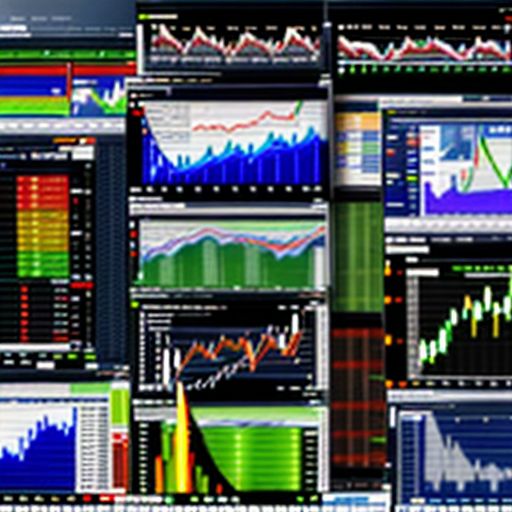Have you ever come across the term “online trading” and wondered what it actually means? In today’s digital world, it’s a phrase buzzing around the internet, but understanding its true essence can feel overwhelming. Fear not! This comprehensive guide will demystify online trading, equip you with the knowledge to navigate the financial markets, and answer your burning questions.
What Is Online Trading?
In essence, online trading is the buying and selling of financial instruments over the internet. It gives individuals like you and me direct access to the global financial markets, cutting out the need for traditional brokerage firms. Think of it as your digital gateway to trading stocks, bonds, currencies, and more, all from the comfort of your own home.
trading.disneyaz.com/wp-content/uploads/2024/07/online-trading-platforms-669bb4.jpg" alt="Online Trading Platforms" width="512" height="512">Online Trading Platforms
Why is Online Trading Important?
Online trading has revolutionized the financial landscape, empowering individuals with:
Accessibility: Trade from anywhere in the world, 24/7, with just an internet connection.
Control: Make independent trading decisions, execute trades instantly, and manage your own portfolio.
Lower Costs: Online trading platforms often come with lower fees and commissions compared to traditional brokers.
Diverse Investment Opportunities: Access a wide range of financial instruments and global markets, diversifying your investment portfolio.
Key Concepts in Online Trading:
To truly grasp online trading, it’s essential to familiarize yourself with some key concepts:
Trading Platforms:
These are online software platforms provided by brokers that enable you to access the markets and execute trades. They often come equipped with charting tools, research resources, and real-time market data.
Financial Instruments:
These are the assets you can trade online, including:
- Stocks: Represent ownership in publicly traded companies.
- Bonds: Debt securities issued by governments or corporations.
- Forex (Foreign Exchange): Trading different currencies against each other.
- ETFs (Exchange-Traded Funds): Baskets of assets that track a particular market index.
Orders:
Instructions you give to your broker to buy or sell financial instruments. Common order types include:
- Market Order: Buy or sell at the best available market price.
- Limit Order: Buy or sell at a specific price or better.
- Stop-Loss Order: Automatically sell an asset if its price falls to a predetermined level, limiting potential losses.
Frequently Asked Questions about Online Trading:
Is Online Trading Safe?
Security is paramount in online trading. Choose a reputable broker regulated by a recognized financial authority. Look for platforms with robust security measures like two-factor authentication and data encryption.
How Much Money Do I Need to Start Online Trading?
The amount needed varies depending on the broker and the instruments you wish to trade. Some brokers offer accounts with low minimum deposit requirements, making online trading accessible even with a small initial investment.
How Do I Choose an Online Trading Platform?
Consider factors like:
- Fees & Commissions: Compare trading costs across platforms.
- Trading Tools & Features: Assess the platform’s charting tools, research offerings, and order types.
- Customer Support: Ensure the platform provides reliable customer service.
- Security & Regulation: Verify the platform’s security measures and regulatory compliance.
Conclusion
Online trading provides an accessible and empowering way to participate in the financial markets. By understanding the fundamentals, choosing a reputable broker, and continuously educating yourself, you can embark on your online trading journey with confidence. Remember, start small, manage your risks, and never stop learning.
Do you have any more questions about online trading? Share them in the comments below!
